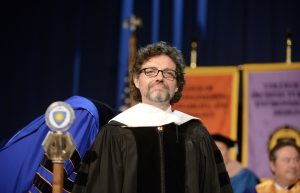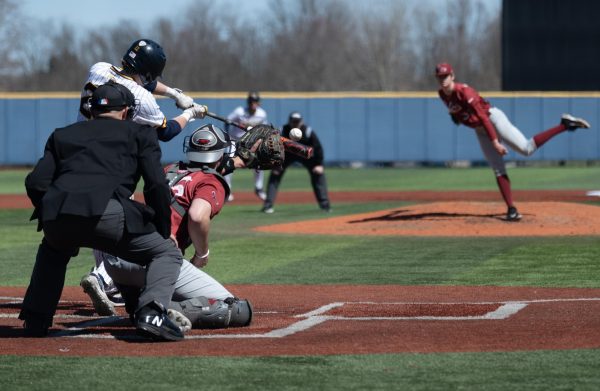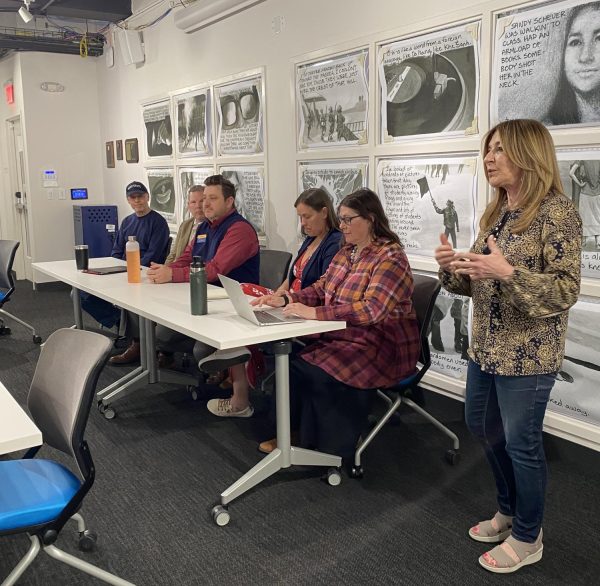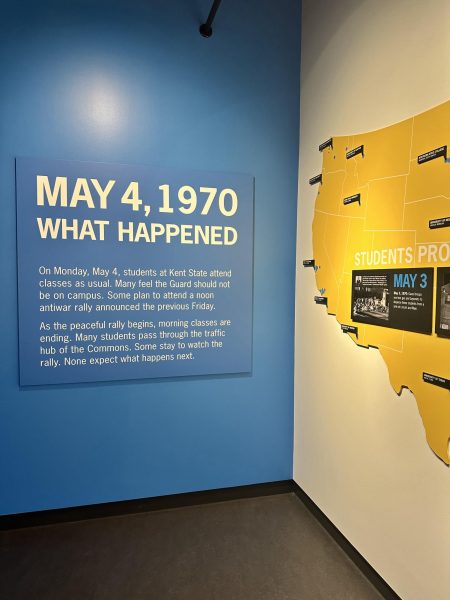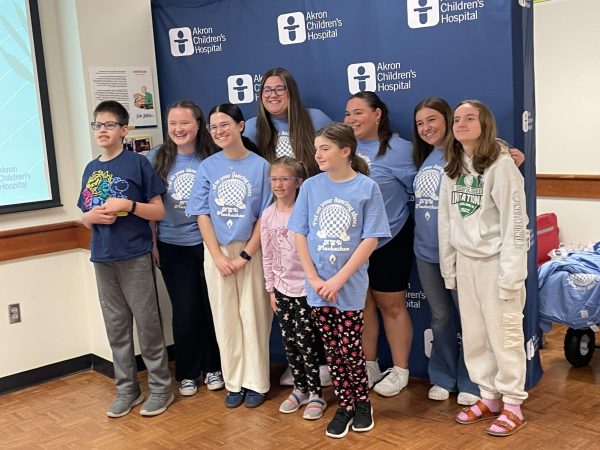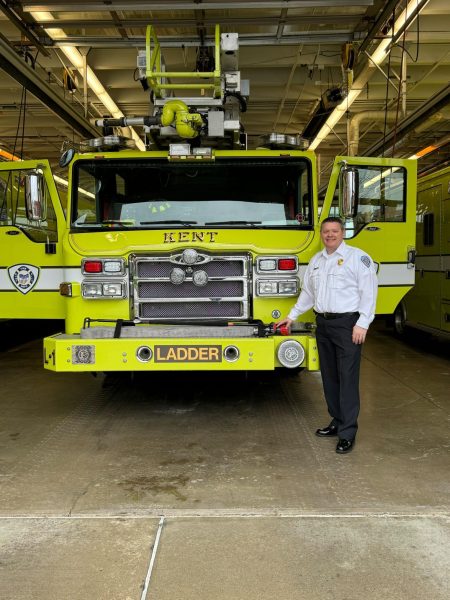Kent State’s not so trashy
September 6, 2005
New recycling program on campus aims to reduce waste, increase awareness
Upon moving into their rooms, on-campus residents received blue recycling bins to help reduce waste. The goal of the program is to increase environmental awareness by reaching the greatest population possible.
Credit: Jason Hall
Items to recycle are:
— Source: Betsy Joseph, director of Residence Services |
Mother Nature can breathe a sigh of relief — at least on Kent State’s campus.
A new on-campus recycling program makes recycling an easier process for all residents.
Residence Services, with the help of representatives from Students Eliminating Environmental Destruction and Kent Interhall Council, placed 3,900 recycling bins — one in every residence hall room on campus — to encourage recycling.
“Our hope is that the addition of the recycling containers in student rooms will make it more convenient and easier for students to participate in the recycling efforts on campus,” said Betsy Joseph, director of Residence Services.
SEED member Brett Wilhelm helped plan the recycling program last fall with Residence Services and Robin Gagnow, the former associate director for administrative operations and facilities in Residence Services.
“We talked with students from other colleges that have really good recycling programs,” Wilhelm said, referring to Bowling Green State University and the College of Wooster.
Wilhelm, junior international relations major, said other ideas considered to increase environmental awareness include placing recycling bins outside, trying to get real plates instead of Styrofoam and acquiring more bike racks to encourage less driving.
He said placing recycling bins in the rooms was chosen because recycling is well-known and easy to accept.
“The answers and the reasons why you do it aren’t very complex,” Wilhelm said. “You know you recycle because it uses less material.”
Alecia Bernardo, freshman early childhood education major, said she thinks this program is a good idea.
“I think it’s important considering we live on planet Earth,” she said. “We shouldn’t destroy our planet more than necessary.”
Bernardo, Centennial Court E resident, said she and her roommate make good use of their recycling bin and continually recycle their newspapers, plastics, bottles and food containers.
Residence Services distributed a brochure detailing what items are recyclable while students moved in to help spread the information, Joseph said.
Stacy Desmarteau, Prentice Hall resident and freshman nursing major, said she is “new to recycling.”
Although she didn’t recycle before she came to school, she said she is an “efficient recycler” now.
“So many things can be remade out of the things we use,” Desmarteau said.
Although she empties her trash can about every other day, she empties her recycling every one to three days.
According to the brochures distributed by Residence Services, residents should empty their recycling bins in the larger bins located in the trash or laundry room of their hall once they are full.
James McQuiston, Terrace Hall resident and political science graduate student, agrees this program is beneficial and important.
“We have a definite amount of resources,” he said. “Landfills take up space.”
Joseph said she hopes students in all residence halls get involved.
“It is important that all of us educate ourselves on the benefits of recycling,” she said. “My desire is for this program to continue and strengthen. Recycling is important to all of us. In today’s throw-away society, all of us need to take responsibility to improve the condition of our earth.”
Contact room and board reporter Stephanie Park at [email protected].









